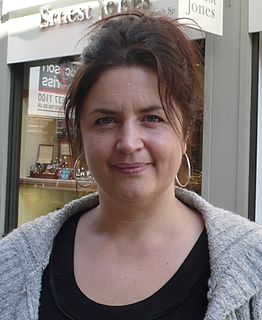A Quote by Ruth Jones
Related Quotes
If I'm writing a novel, I'll probably get up in the morning, do email, perhaps blog, deal with emergencies, and then be off novel-writing around 1.00pm and stop around 6.00pm. And I'll be writing in longhand, a safe distance from my computer. If I'm not writing a novel, there is no schedule, and scripts and introductions and whatnot can find themselves being written at any time and on anything.
Writing has to do with truth-telling. When you're writing, let's say, an essay for a magazine, you try to tell the truth at every moment. You do your best to quote people accurately and get everything right. Writing a novel is a break from that: freedom. When you're writing a novel, you are in charge; you can beef things up.
Writing is a strange and solitary activity. There are dispiriting times when you start working on the first few pages of a novel. Every day, you have the feeling you are on the wrong track. This creates a strong urge to go back and follow a different path. It is important not to give in to this urge but to keep going.


































